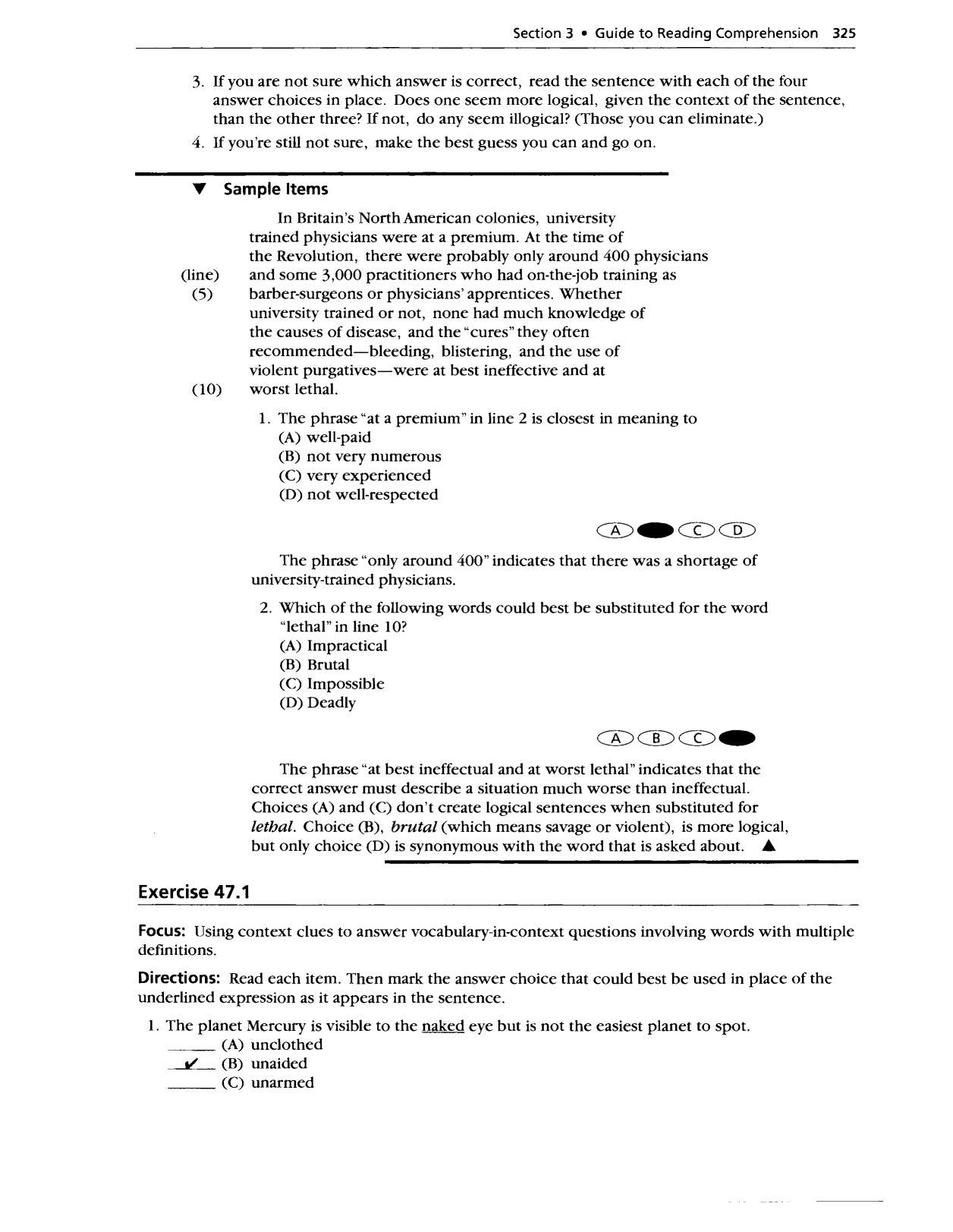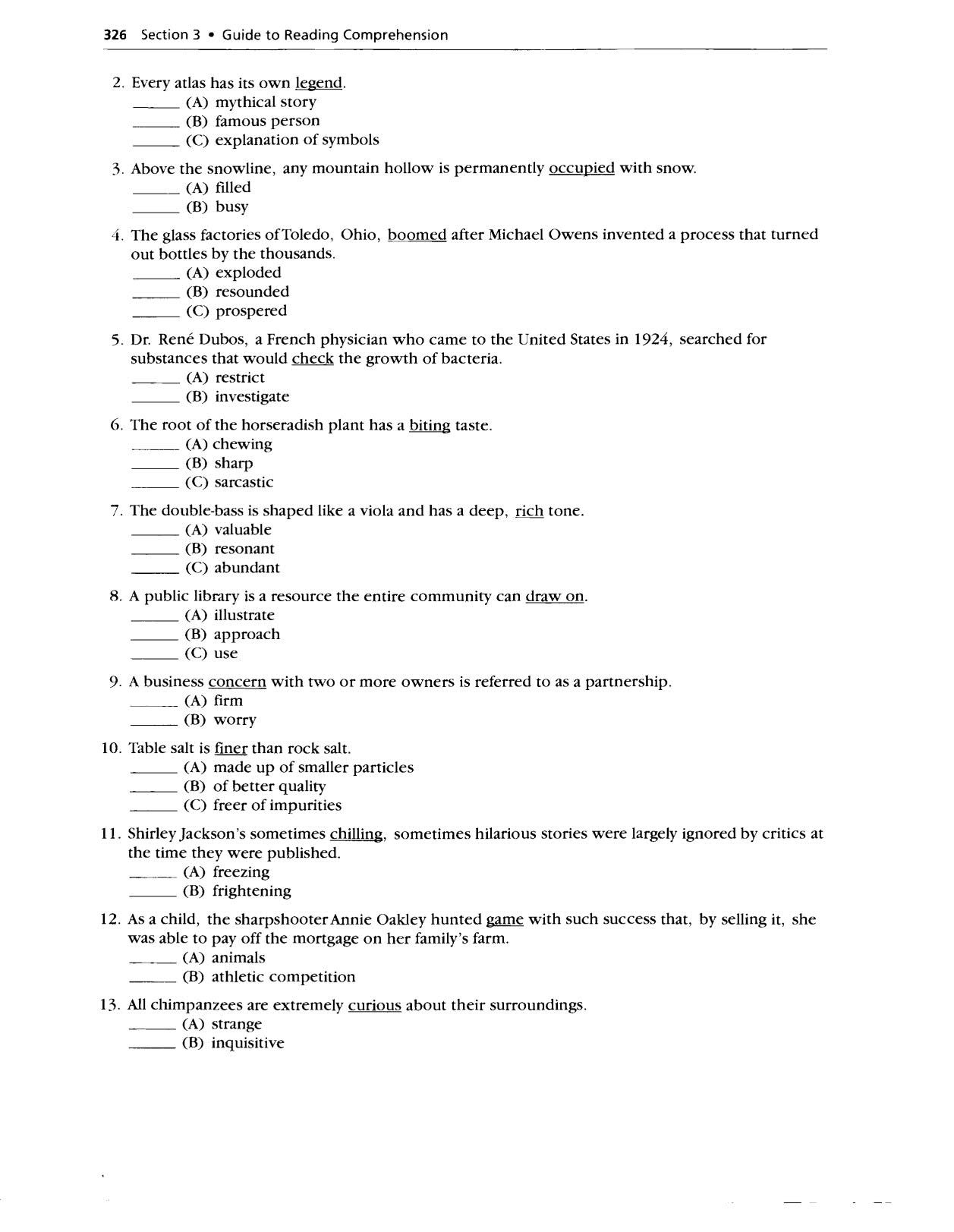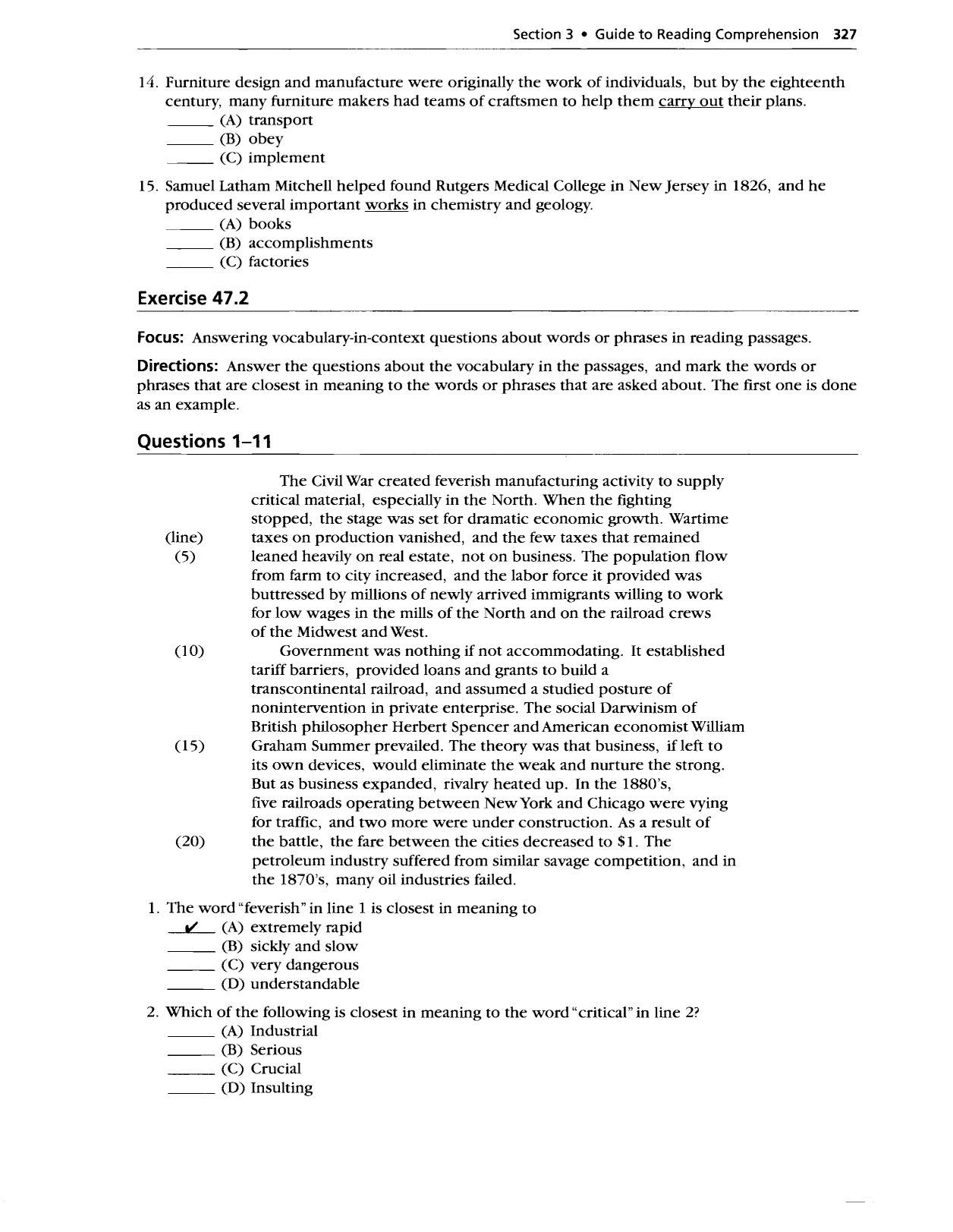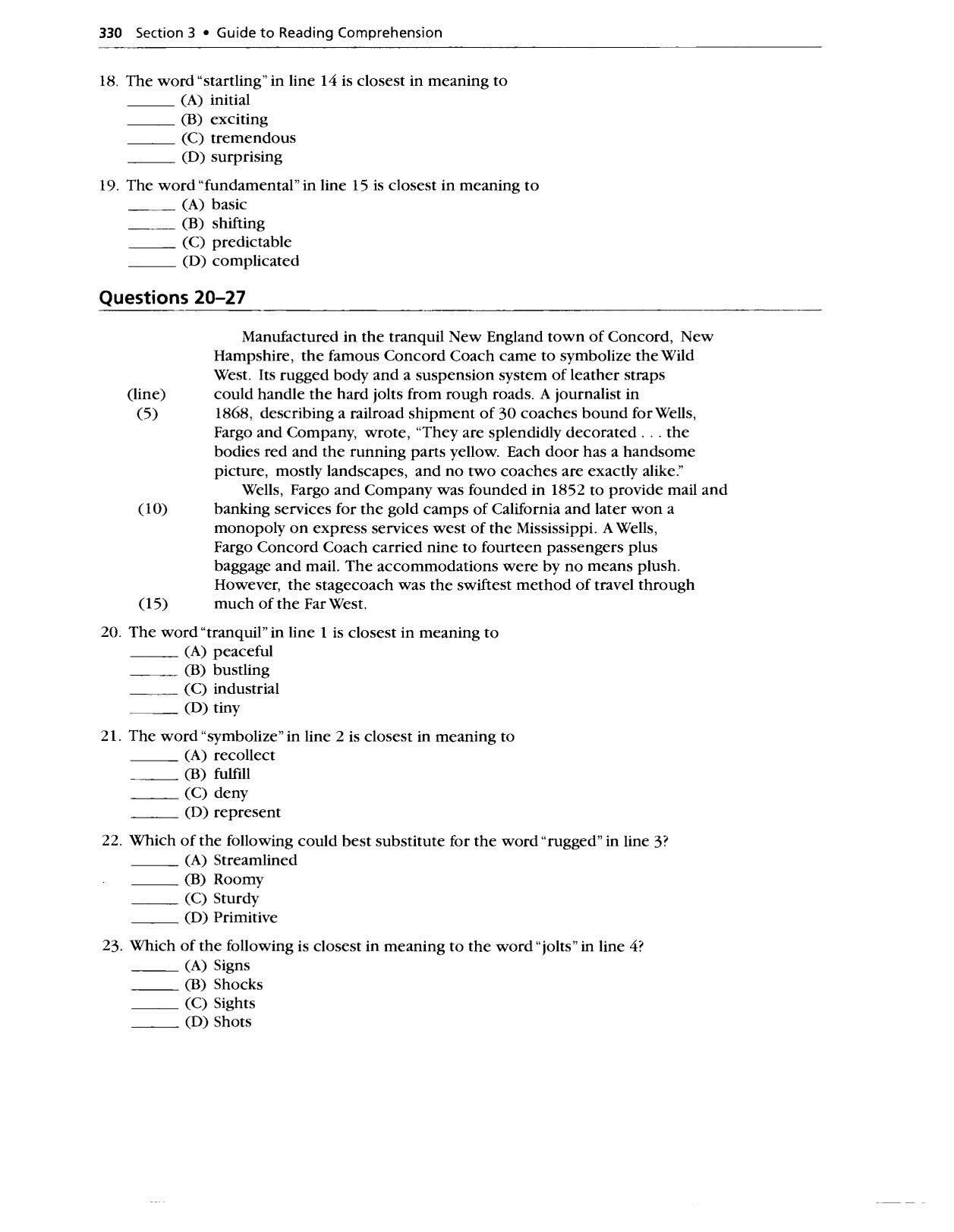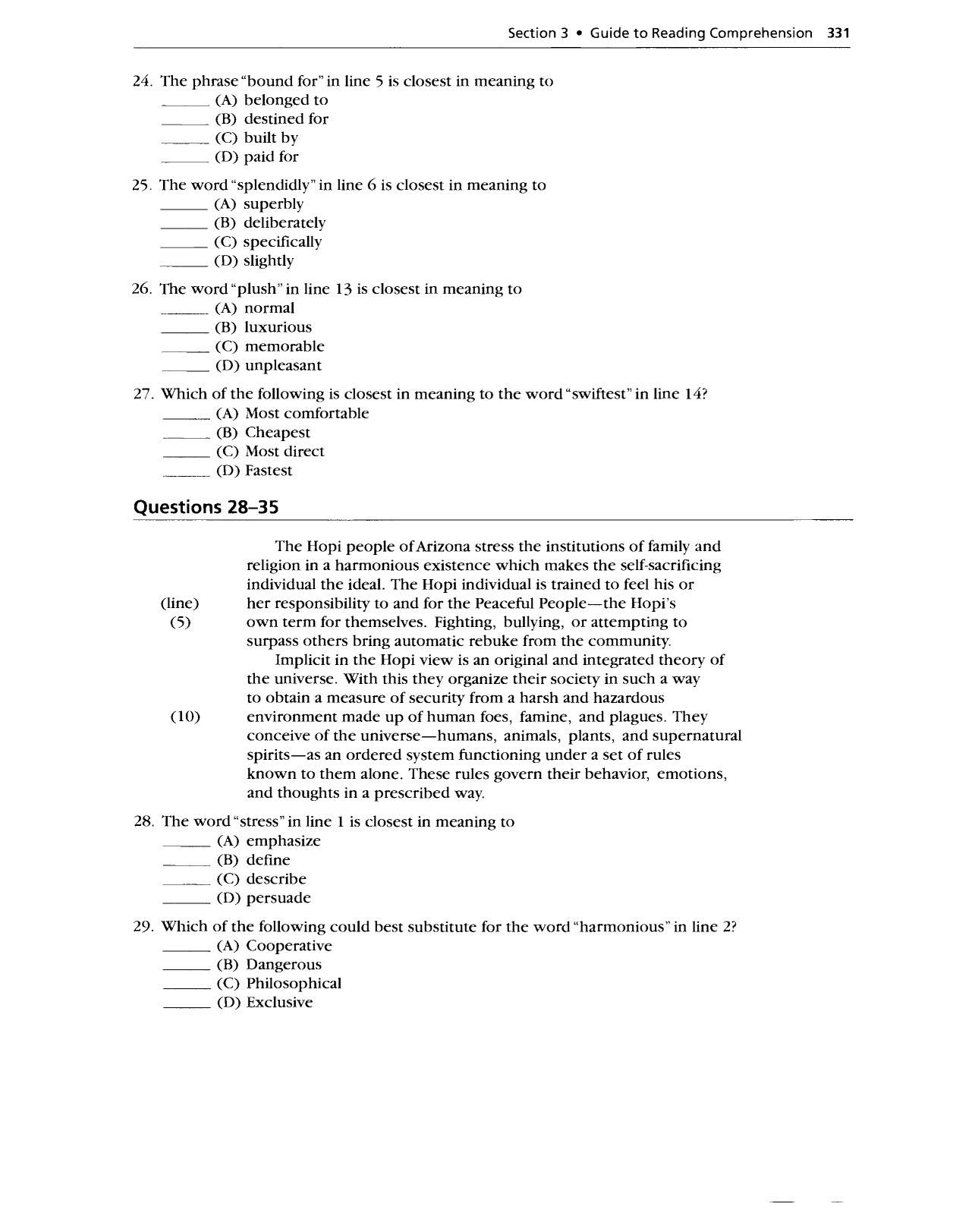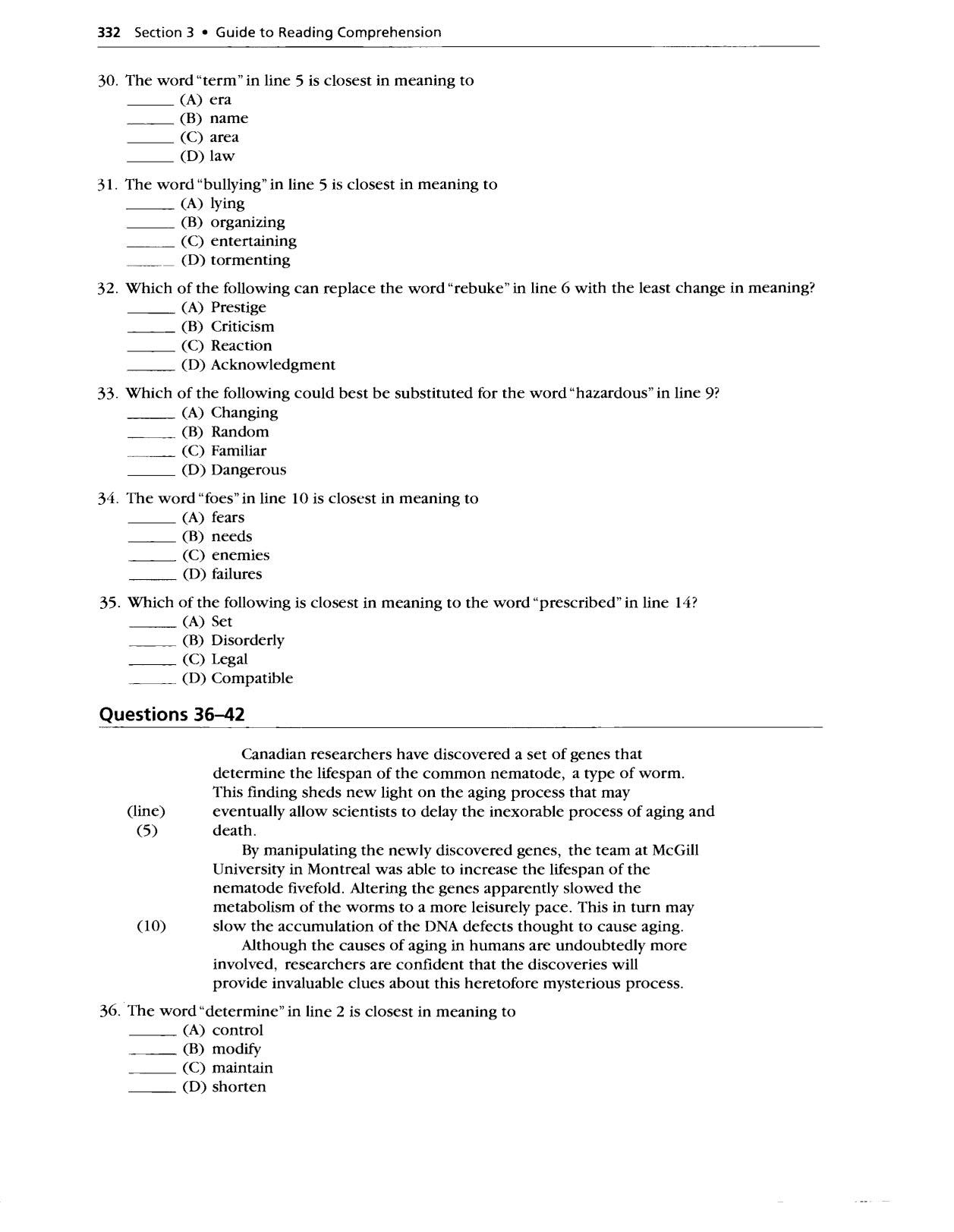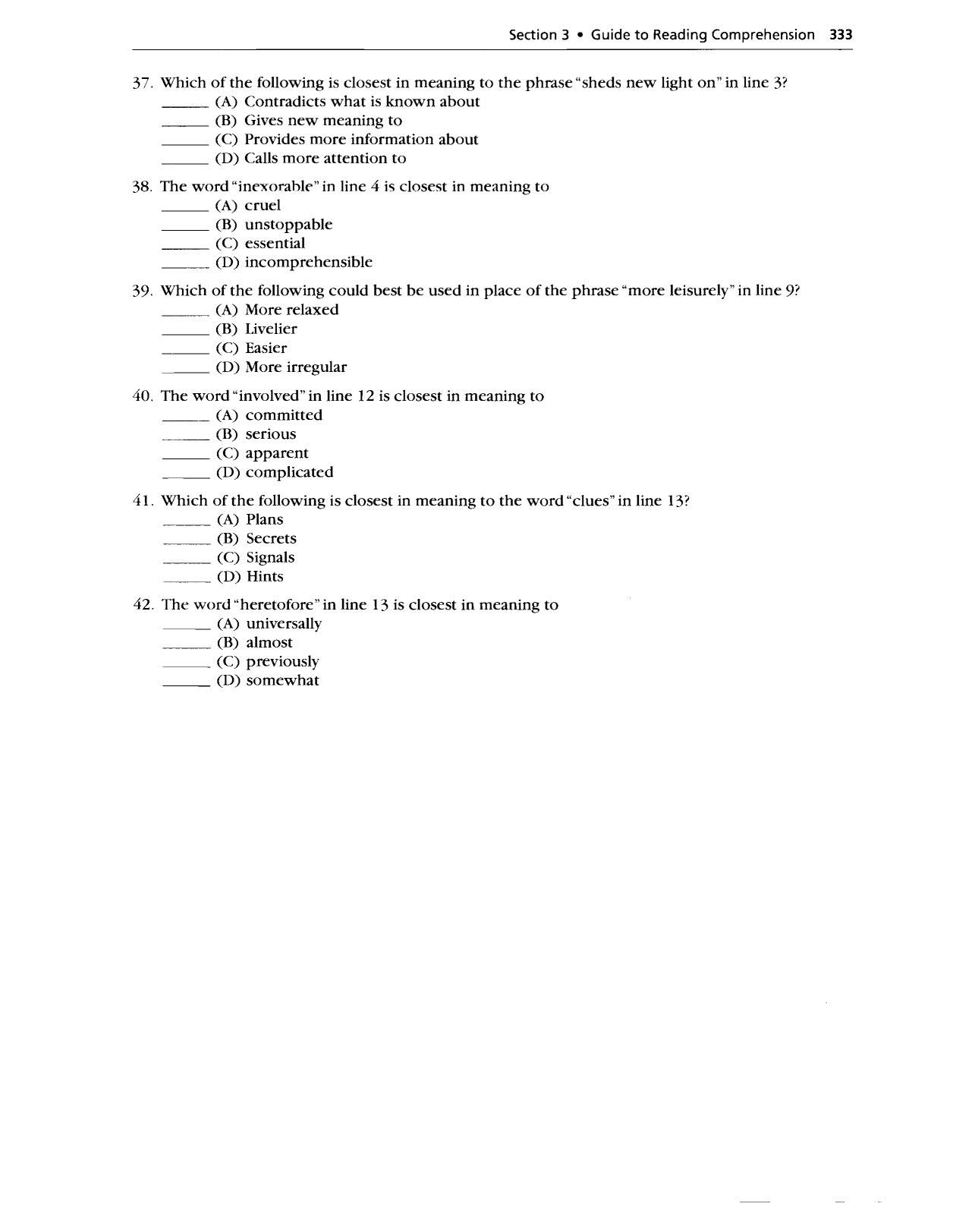47. Vocabulary-in-Context Questions
In vocabulary-in-context questions, you must determine which word or phrases out of four choices can best substitute for a word or words in the passage.
Most of the questions ask about single words (usually nouns, verbs, adjectives, and adverbs). Some ask about two- or three-word phrases.
Sometimes two or more of the answer choices for these items might be “correct” definitions of the word that is asked about. In those cases, you must decide which is correct in the context of the passage.
There are a number of clues that can help you determine the meaning of an unknown word:
- Synonyms
The first state to institute compulsory education was Massachusetts, which made it mandatory for students to attend school 12 weeks a year.
The word mandatory is a synonym for the word compulsory.
- Examples
Many gardeners use some kind of mulch, such as chopped leaves, peat moss, grass clippings, pine needles, or wood chips, in order to stop the growth of weeds and to hold in moisture.
From the examples given, it is clear that mulch is plant matter.
- Contrast
In the 1820’s the Southern states supported improvements in the national transportation system, but the Northern states balked.
Since the Southern states supported improvements, and since a word signaling contrast (but) is used, it is clear that the Northern states disagreed with this idea, and that the word balked must mean objected or refused.
- General Context
In a desert, vegetation is so scanty as to be incapable of supporting any large human population.
As is generally known, deserts contain little vegetation, so clearly the word scanty must mean scarce or barely sufficient.
When answering vocabulary-in-context questions, you must often depend on the general context of the sentence to help you choose the correct answer.
You should follow these steps to answer vocabulary-in-context items:
- Look at the word being asked about and the four answer choices. If you are familiar with the word, guess which answer is correct. Do not mark your answer sheet yet.
- Read the sentence in which the word appears. If you were familiar with the word and guessed at the answer, make sure that the word that you chose fits with the word as it is used in the sentence. If you were unfamiliar with the word, see if context clues in the sentence or in the sentences before or after help you guess the meaning.
- If you are not sure which answer is correct, read the sentence with each of the four answer choices in place. Does one seem more logical, given the context of the sentence, than the other three? If not, do any seem illogical? (You can eliminate those.)
- If you’re still not sure, make the best guess you can and go on.
∇ Sample Items
In Britain’s North American colonies, university trained physicians were at a premium. At the time of the Revolution, there were probably only around 400 physicians and some 3,000 practitioners who had on-the-job training as barber-surgeons or physicians’ apprentices. Whether university trained or not, none had much knowledge of the causes of disease, and the “cures” they often recommended–bleeding, blistering, and the use of violent purgatives–were at best ineffective and at worst lethal.
- The phrase “at a premium” in the paragraph is closest in meaning to
(A) well-paid
(B) not very numerous
(C) very experienced
(D) not well-respected
The answer is (B) because the phrase “only around 400” indicates that there was a shortage of university-trained physicians.
2. Which of the following words could best be substituted for the word
“lethal” in the paragraph?
(A) Impractical
(B) Brutal
(C) Impossible
(D) Deadly
The answer is (D) because The phrase “at best ineffectual and at worst lethal” indicates that the correct answer must describe a situation much worse than ineffectual. Choices (A) and (C) don’t create logical sentences when substituted for lethal. Choice (B), brutal (which means savage or violent), is more logical, but only choice (D) is synonymous with the word that is asked about.
